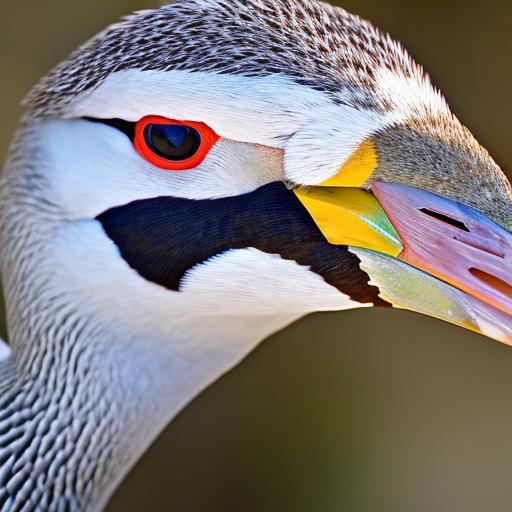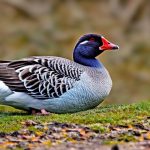Geese are a beloved attraction in zoos around the world. Visitors enjoy watching these graceful birds as they swim in ponds or walk around their enclosures. However, what many people may not realize is that maintaining a clean habitat for geese is crucial for their health and well-being. In this blog post, we will explore the natural habitat of geese, the role of the zoo in providing a safe and clean habitat, and the impact of cleanliness on geese health.
Key Takeaways
- Maintaining a clean habitat is crucial for the health and well-being of geese in the zoo.
- Understanding the natural habitat of geese is important for providing a safe and clean environment in the zoo.
- The zoo plays a vital role in providing a safe and clean habitat for geese.
- Cleanliness has a significant impact on the health and well-being of geese in the zoo.
- Regular cleaning and maintenance of geese habitats, using eco-friendly products, is essential for their health and the environment.
Understanding the Natural Habitat of Geese
Geese are migratory birds that typically live near bodies of water such as lakes, rivers, or wetlands. They are social animals and often form large flocks. In their natural habitat, geese rely on clean water, vegetation, and ample space to thrive. They feed on aquatic plants, grasses, and grains found in their environment.
Zoos aim to replicate these natural habitats as closely as possible to ensure the well-being of the geese in their care. This means providing them with access to clean water sources, suitable vegetation for grazing, and enough space to move around freely. By recreating these natural conditions, zoos can help geese feel more at home and reduce stress.
The Role of the Zoo in Providing a Safe and Clean Habitat for Geese
Zoos have a responsibility to provide a safe and healthy environment for all animals in their care, including geese. This includes regular cleaning and maintenance of their habitats. A clean habitat is essential for the overall health and well-being of geese.
In the wild, geese have access to clean water sources where they can swim and drink. In zoos, it is crucial to ensure that the water in their enclosures is regularly cleaned and free from contaminants. This helps prevent the spread of diseases and parasites that can be harmful to the geese.
Zoos also need to maintain the vegetation in geese habitats. This includes regularly trimming and removing any dead or decaying plants. By doing so, zoos can prevent the growth of harmful bacteria or fungi that could negatively impact the geese’s health.
The Impact of Cleanliness on the Health and Well-being of Geese
Maintaining a clean habitat is not just about aesthetics; it directly affects the health and well-being of geese. Dirty habitats can lead to the spread of diseases and parasites, as well as stress and discomfort for the geese.
When geese are exposed to dirty water sources, they are at risk of contracting waterborne diseases such as avian botulism or avian influenza. These diseases can be fatal if left untreated. Additionally, dirty water can also harbor parasites such as worms or mites, which can cause discomfort and health issues for the geese.
A dirty habitat can also lead to stress for geese. When their environment is unclean, they may feel anxious or uncomfortable, which can negatively impact their overall well-being. Stress can weaken their immune system, making them more susceptible to illnesses.
The Zoo’s Cleaning Practices for Geese Habitats
Zoos have specific cleaning practices in place to ensure the cleanliness of geese habitats. These practices include regular removal of waste and debris, cleaning of water sources, and disinfection of surfaces.
Zookeepers are responsible for regularly cleaning geese habitats. They remove any waste or debris from the enclosure, including feathers, droppings, or uneaten food. This helps maintain a clean and hygienic environment for the geese.
Water sources in geese habitats need to be cleaned regularly to ensure they are free from contaminants. Zookeepers may use filtration systems or manually clean the water to remove any impurities. This helps prevent the spread of diseases and ensures the geese have access to clean drinking water.
Surfaces in geese habitats, such as rocks or logs, also need to be disinfected regularly. This helps eliminate any harmful bacteria or fungi that could grow and cause health issues for the geese.
The Importance of Regular Cleaning and Maintenance of Geese Habitats

Regular cleaning and maintenance of geese habitats are crucial to prevent the spread of diseases and ensure the geese are comfortable and healthy. By removing waste and debris, zookeepers can reduce the risk of bacterial or fungal growth that could harm the geese.
Cleaning water sources is particularly important as it helps prevent the transmission of waterborne diseases. Regular disinfection of surfaces also helps maintain a clean and hygienic environment for the geese.
Furthermore, regular cleaning and maintenance allow zookeepers to monitor the geese closely for any signs of illness or distress. By observing their behavior and physical condition, zookeepers can identify potential health issues early on and provide appropriate care.
The Use of Eco-Friendly Cleaning Products in Geese Habitats
Many zoos prioritize sustainability and environmental conservation. As part of their commitment to eco-friendly practices, they use cleaning products that are safe for both the geese and the environment.
Eco-friendly cleaning products are formulated with natural ingredients that are less harmful to animals and ecosystems. They do not contain harsh chemicals or toxins that could be detrimental to the health of the geese or contaminate their habitat.
By using eco-friendly cleaning products, zoos can minimize their impact on the environment while still maintaining a clean and safe habitat for geese.
The Role of Zookeepers in Maintaining Clean Geese Habitats
Zookeepers play a vital role in maintaining clean geese habitats. They are responsible for daily cleaning tasks such as removing waste, cleaning water sources, and disinfecting surfaces.
In addition to cleaning, zookeepers also monitor the geese for signs of illness or distress. They observe their behavior, appetite, and physical condition to ensure they are healthy and thriving. If any issues are detected, zookeepers can provide appropriate medical care or make adjustments to the geese’s habitat to improve their well-being.
Zookeepers also play an educational role by providing information to visitors about the importance of maintaining clean habitats for geese. They can explain the cleaning practices in place and how they contribute to the overall health and well-being of the geese.
The Benefits of a Clean Geese Habitat for Visitors and the Environment
A clean geese habitat not only benefits the geese but also provides a better experience for visitors and helps protect the environment.
Visitors to the zoo can enjoy watching geese in a clean and well-maintained habitat. Aesthetically pleasing enclosures enhance the overall experience and allow visitors to appreciate the beauty of these birds in a natural setting.
Furthermore, a clean habitat reduces the risk of diseases spreading from animals to humans. By maintaining a hygienic environment, zoos can ensure the safety of both their animal residents and visitors.
From an environmental perspective, maintaining clean habitats helps protect local ecosystems. By preventing the spread of diseases or parasites, zoos can minimize their impact on surrounding wildlife populations. Additionally, using eco-friendly cleaning products reduces pollution and minimizes harm to ecosystems.
The Zoo’s Commitment to Providing the Best Possible Habitat for Geese
Zoos are committed to providing the best possible habitat for geese in their care. Regular cleaning and maintenance are essential to ensure the health and well-being of these birds. By replicating their natural habitat as closely as possible and using eco-friendly cleaning practices, zoos can create a safe and clean environment for geese to thrive.
Maintaining a clean habitat not only benefits the geese but also provides a better experience for visitors and helps protect the environment. Zoos play a crucial role in educating the public about the importance of cleanliness in animal habitats and promoting sustainable practices.
By prioritizing the cleanliness and well-being of geese, zoos demonstrate their commitment to animal welfare and conservation. Through their efforts, they contribute to the preservation of these beautiful birds for future generations to enjoy.
If you’re interested in learning more about maintaining clean habitats for animals, you might find this article on converting a shed into a chicken coop from Poultry Wizard quite informative. The article discusses the steps and considerations involved in repurposing a shed to create a suitable living space for chickens. By implementing proper design and hygiene practices, you can ensure that the coop remains clean and comfortable for your feathered friends. Check out the article here to discover how to create a clean and efficient chicken coop.
FAQs
What is the article about?
The article is about how the zoo keeps the geese’s habitat clean.
Why is it important to keep the geese’s habitat clean?
It is important to keep the geese’s habitat clean to maintain their health and well-being. A clean habitat also helps prevent the spread of diseases.
What measures does the zoo take to keep the geese’s habitat clean?
The zoo takes several measures to keep the geese’s habitat clean, such as regularly cleaning the pond, removing any debris or waste, and using natural methods to control algae growth.
What are the benefits of keeping the geese’s habitat clean?
Keeping the geese’s habitat clean benefits both the geese and the visitors to the zoo. The geese are healthier and happier, and visitors can enjoy watching them in a clean and natural environment.
What can visitors do to help keep the geese’s habitat clean?
Visitors can help keep the geese’s habitat clean by not littering and disposing of their trash properly. They can also report any litter or debris they see in the habitat to zoo staff.
Meet Walter, the feathered-friend fanatic of Florida! Nestled in the sunshine state, Walter struts through life with his feathered companions, clucking his way to happiness. With a coop that’s fancier than a five-star hotel, he’s the Don Juan of the chicken world. When he’s not teaching his hens to do the cha-cha, you’ll find him in a heated debate with his prized rooster, Sir Clucks-a-Lot. Walter’s poultry passion is no yolk; he’s the sunny-side-up guy you never knew you needed in your flock of friends!







